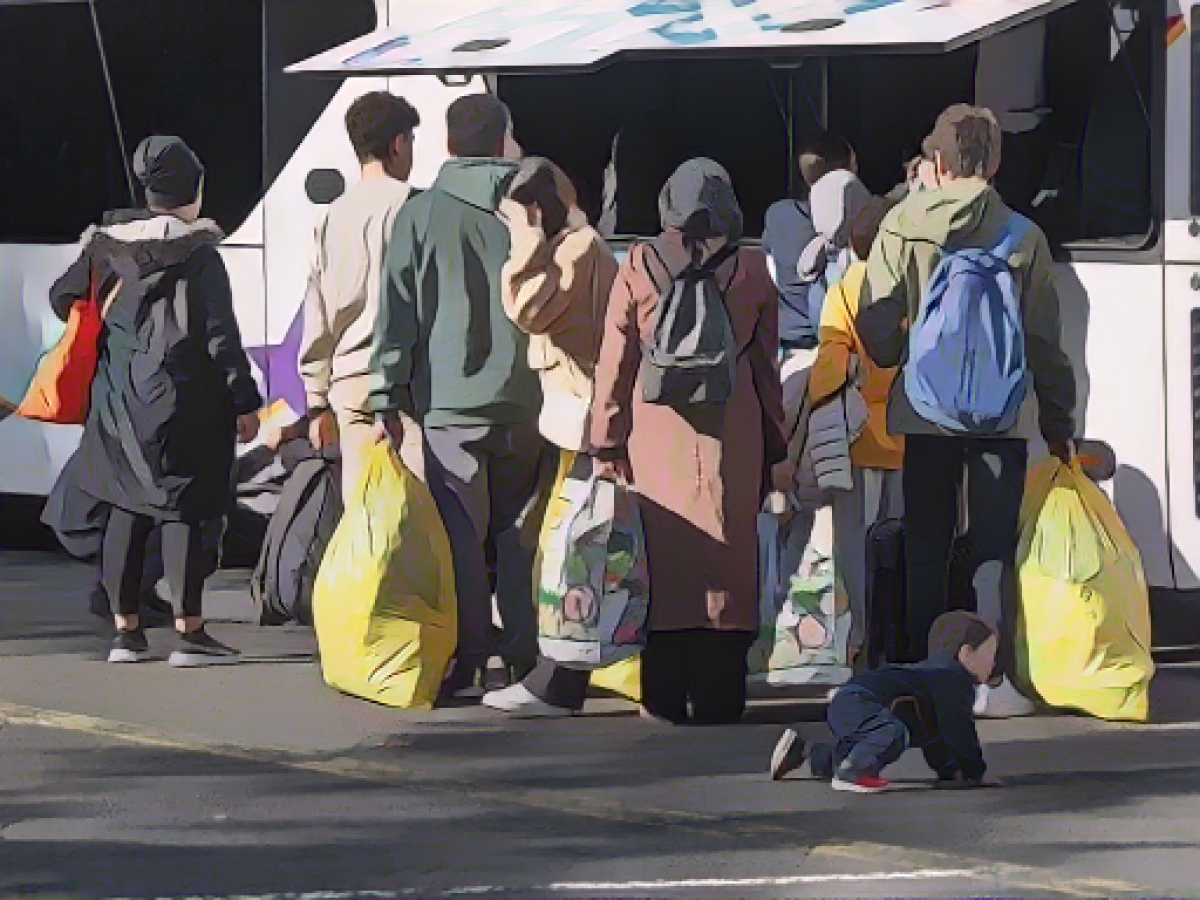In advance of the federal-state summit on Monday, Lower Saxony's Minister President Stephan Weil is advocating for a national consensus on immigration policy as a sign of shared responsibility among citizens. Mecklenburg-Western Pomerania's Minister President Manuela Schwesig, also of the SPD, insists on federal lump sums to support accommodating asylum seekers.
The meeting between the heads of state governments and Federal Chancellor Olaf Scholz will focus on funding refugee accommodation, with federal states opposing the proposed reduction from 3.75 billion euros this year to 1.25 billion euros next year. Schwesig advocates for a dynamic system where more funds are allocated as the number of refugees increases and less when there are fewer.
Justice Minister Marco Buschmann (FDP) supports signaling a turnaround in migration, along with Weil, who emphasizes the need to reduce the number of people arriving in Germany each week. To support local authorities, the Association of Cities suggests accelerating asylum procedures to minimize the burden on municipalities.
While advocating for a reduction in asylum seekers, Schwesig continues her demand for federal lump sums. Criticizing the tone of the asylum debate, Federal Government Commissioner for Integration Reem Alabali-Radovan emphasizes its impact on societal divisiveness, calling for a shift in focus as a cause of German societal issues.
Background information:
The current debate has its roots in the excessive burden on municipal infrastructure, resulting from the influx of refugees, such as during the "Summer of Immigration" in 2015-2016. Structural problems, including declining social housing units, labor shortages in the childcare sector, and overpopulated accommodation centers, are contributing factors to the growing challenge of accommodating and integrating migrants.
Various political advocacy groups offer different solutions, such as the Christian Democratic Union (CDU) and its partner, the Christian Social Union (CSU), proposing cost-cutting measures, including reduced social benefits and elimination of certain assistance programs for newly arrived refugees. Meanwhile, the Social Democratic Party of Germany (SPD) and the Greens prefer maintaining the current system to support Ukrainian refugees, while offering improvements in integrating them into the labor market.
Addressing the issue requires comprehensive, long-term planning, such as revising accommodation regulations, expanding municipal infrastructure, and bridging the gap between refugee immigration and skilled labor immigration to ease the burden on local authorities and provide better integration opportunities for refugees.








